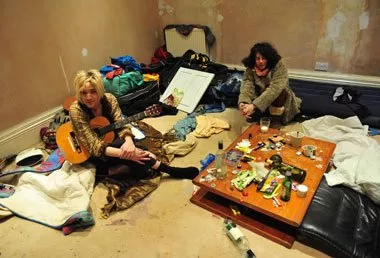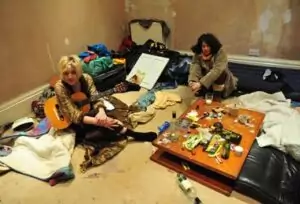
06 Nov Why Preparing For Squatters Should Be One of Your Top Priorities
Why Preparing For Squatters Should Be One of Your Top Priorities
Homeowners placing their property on the market come across a variety of problems that they need facing – one problem in particular, and which has its own route of problem solving, is that of having a vacant property.
One of those potential problems? Squatters – individuals, and sometimes entire families, who move themselves and their belongings into an empty residential home and live there without compensating the rightful owners.
In his book Shadow Cities: A Billion Squatters, A New Urban World, author Robert Neuwirth estimates that there are potentially 1 billion squatters around the globe. News articles across the U.S. alone have caused all kinds of responses, from cases of fraud and grand theft in Florida, to an electrician in New York who successfully squatted in apartment buildings in the Lower East Side, which former mayor Rudy Giuliani eventually sold to him.
It’s not a reality in real estate that’s going away any time soon. Whether you believe your home may be on the market for a while and you need to vacate it in order to find your new one, or you simply are dealing with a rental property, keeping your home safe is a tremendous job. Fortunately, there are things you can do to protect yourself and your real estate investment.
Become Familiar with State Laws
Every state has different laws when it comes to how home owner can handle squatters, and what are called “squatter’s rights.” Look up how the law handles squatters specifically in your state, and recognize how much power a potential squatter could yield over you. In some states, squatters have very few rights – in others, they can gather very strong footholds.
Turn off Utilities
It might not be something you automatically think to do. After all, if no one is in the house, then you won’t be racking up costs for water and electricity, right? And leaving the utilities on means that when potential home buyers come through, there’s no hassle in getting utilities on for inspection. The problem here is that squatters can then easily make use of your water, electricity, or gas. If you haven’t started forwarding your mail, or if your utility company doesn’t make use of multi-account statements, you may not even realize this until the squatters have racked up an impressive few months of power usage. Cut the cord (and pipes, and gas lines…), and cut it early.
Alert the Neighbors
A watched pot may never boil, but a vacant house needs all the watching it can get. Let your neighbors know that the house will be vacant. If you have a neighborhood HOA or a neighborhood watch, ask that it get an extra eye as well. If you know that city police patrol your neighborhood, get them in on it. A community is an amazing resource for keeping crime low, and you’ll never know just how valuable it is until you get a call from a neighbor one day who lets you know that someone just moved in unbeknownst to you.
Install Mobile Alert Technology and Change Locks
Home security has gone far beyond simple alarms that sound when a door or window is breached. Because you’re dealing with a vacant property, there’s a good chance you won’t be very close by to keep an immediate eye on the home. Consider installing a security system that allows for mobile or desktop monitoring and interaction. As a homeowner, you can receive text or email alerts when windows or doors are breached, or even as check in on your home through security cameras. Zions Security is one of the few companies that will provide you with month to month monitoring options if you do not want to commit to a long term agreement.
The locks to your home should also be changed – especially if you never changed them when you initially moved in. Any locked entrance to your home, be it the garage, side door, basement, or balcony, should be changed. Any person who could have had a key could have made a copy – and they could be the next squatters in your neighborhood.
Need more information? You can always contact us for further ideas on improving the security of your home.



No Comments